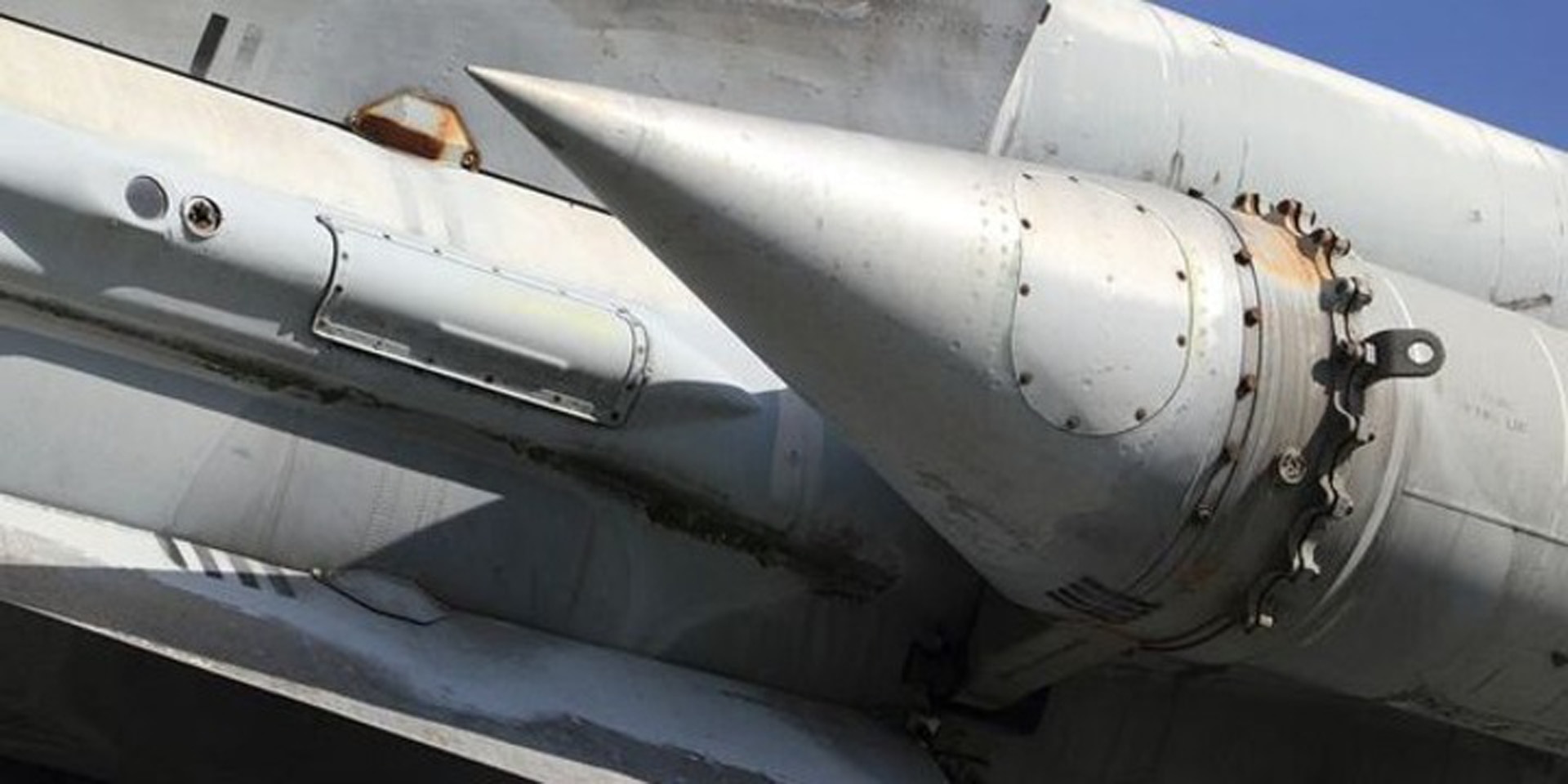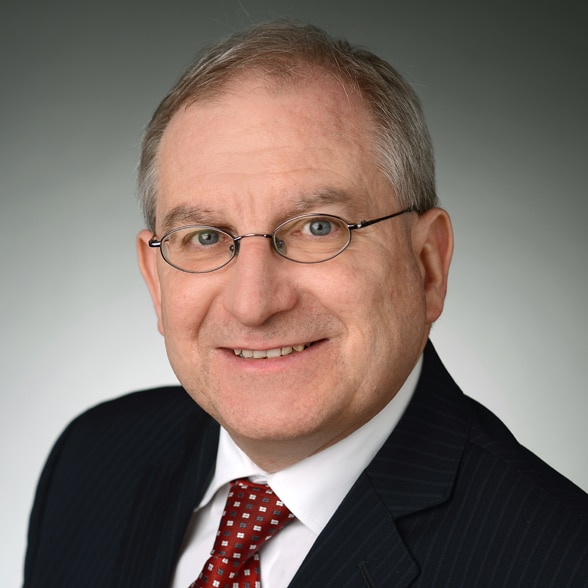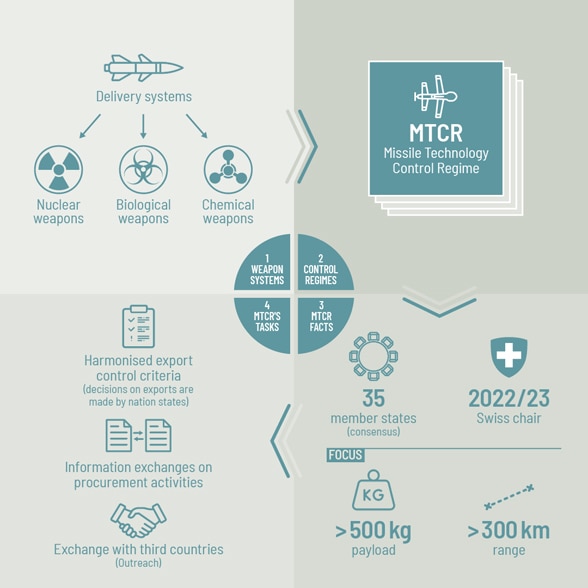The Missile Technology Control Regime
The Missile Technology Control Regime (MTCR) was established by the G7 countries in 1987. Switzerland became a member of the MTCR in 1992. The original aim was to prevent the proliferation of delivery systems for nuclear weapons. In 1992, the regime's scope was extended to include delivery systems for all weapons of mass destruction (including nuclear, biological and chemical weapons). This covers missile systems (ballistic missiles, cruise missiles, space launchers and sounding rockets) as well as unmanned aerial vehicles (UAVs) such as drones. The export controls apply not only to the systems as a whole, but also to the components, software and technology used in their production.
The members of a 'control regime' agree to abide by common guidelines for the export of delivery systems and technology. They also agree on a list of goods and technologies whose export is subject to controls. This list is constantly reviewed and adapted to account for technological and other developments. All decisions in the MTCR are made by consensus. Implementation then takes place at the national level in each case. This means that if a company in Switzerland wishes to export such goods or technology, SECO (the country's national export control authority) must check whether this export is in line with the guidelines.




